France is having an identity crisis
The country is divided over what, exactly, it means to be French
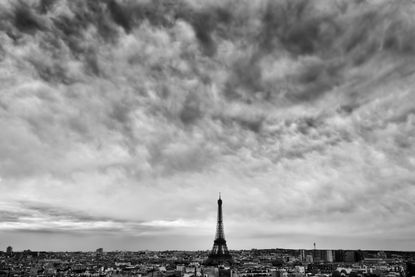

France is in the grips of a very important national debate. Is it about mass unemployment, which has been gripping the country for decades? Rampant crime? Terrorism? No, no, and nope.
France is in a debate about French identity.
The argument about "l'identité nationale" — or "national identity" — has been rumbling for many years, but it has become the most important topic leading up to the 2017 presidential election. At a time of economic malaise, of seemingly sliding international prestige, of globalization, and an ongoing wave of terrorism and immigration, what exactly does it mean to be French?
Subscribe to The Week
Escape your echo chamber. Get the facts behind the news, plus analysis from multiple perspectives.

Sign up for The Week's Free Newsletters
From our morning news briefing to a weekly Good News Newsletter, get the best of The Week delivered directly to your inbox.
From our morning news briefing to a weekly Good News Newsletter, get the best of The Week delivered directly to your inbox.
Former French President Nicolas Sarkozy, who is running again for the office he once held, recently threw the country in a tizzy by announcing that immigrants to France should be taught that, upon entering the country, their ancestors are now Gauls, the inhabitants of what is now France before Roman times.
"If you want to become French, you speak French, you live like the French and you don't try and change a way of life that has been ours for so many years," Sarkozy said, emphasizing the importance of immigrants embracing French values. "Once you are French your ancestors are the Gauls."
This phrase, "Our ancestors the Gauls," harkens back to a popular 19th century children's textbook, and was repeated by French children as a sort of symbol of French identity.
Many people were quick to point out to the former president that, in fact, many French citizens don't have Gauls as ancestors. "Yes there are Gauls among our ancestors," said Education Minister Najat Vallaud-Belkacem. "But there are also Romans, Normans, Celts, Nicois, Corsicans, Arabs, Italians, Spanish. That's France."
Interestingly, that was actually the original point of the phrase: Immigrant children, children who were not born in France, and even children in French colonies in Africa, were taught that their "ancestors" were Gauls. In other words, in France, "ancestry" is a matter of ideas and culture, not blood.
But now, the phrase is associated with another, related notion: the "national novel." Some believe public school children should be taught "the national novel" — a slightly mythified version of French history — in order to breed patriotism.
This narrow debate points to a much bigger one: What does it mean to be French? Is it about ideas? Is it about ancestry? Is it about land? Is it about language? Is it about culture?
There are odd parallels between French and American answers to such questions, because both nations were explicitly founded on Enlightenment ideals. America's self-presentation is that the nation is, first and foremost, an idea — the ideas enshrined in the Declaration of Independence, the Constitution, and the Bill of Rights. To be an American is to believe in the American idea, period. So it is in France: To be French is to believe in human rights, and our own Declaration of the Rights of Man, and maybe a few other ideals, like secularism.
But America could get away with this because it was a new nation. France has 1,500 years of history, culture, and language. To claim that the only people who are truly French are those who believe in human rights and secularism would be missing something.
Especially since it wasn't always so. Today, almost all the French political class hammers secularism as one of the key French values. But for 1,500 years, to be French meant to be Catholic, to pledge allegiance to the king, and to be consecrated to the immaculate heart of Mary. (The national holiday was the Feast of the Immaculate Conception, not exactly a "secular" holiday.) If French identity has changed radically over the centuries, the implication seems to be that the Frenchmen of the past weren't really French.
The French Revolution has been successful in ensuring that France will never be a monarchy again, but not in erasing French history. You can see French politicians with impressive degrees go on TV and say, with a straight face, things like, "The history of France begins in 1789." Really? Louis XIV? Molière? Montaigne? All not French? What were they then?
Once you start defining French identity as something more than an idea, you start going into unhealthy territory, grasping for other identifiers like descent, blood, even skin color.
I'm French, and I have no idea what it means to be French. But I do know that, like America, France is now more polarized than ever. Our economic and social problems persist because of an inability to reach a consensus, partly because we all have a different idea about French identity. Before it can get its house in order, France will have to figure out who and what it is.
Create an account with the same email registered to your subscription to unlock access.
Sign up for Today's Best Articles in your inbox
A free daily email with the biggest news stories of the day – and the best features from TheWeek.com
Pascal-Emmanuel Gobry is a writer and fellow at the Ethics and Public Policy Center. His writing has appeared at Forbes, The Atlantic, First Things, Commentary Magazine, The Daily Beast, The Federalist, Quartz, and other places. He lives in Paris with his beloved wife and daughter.
-
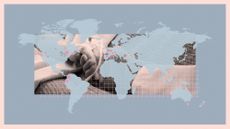 In what countries is assisted dying legal or in consideration for being made legal?
In what countries is assisted dying legal or in consideration for being made legal?In the spotlight More countries are granting more people the right to die
By Devika Rao, The Week US Published
-
 5 captivating books to read in May
5 captivating books to read in Maythe week recommends Brittney Griner tells her own story, a coming-of-middle-age novel and more
By Theara Coleman, The Week US Published
-
 The secretive practice of 'catch-and-kill' tabloid journalism
The secretive practice of 'catch-and-kill' tabloid journalismThe Explainer Outlets such as the National Enquirer have become infamous for using the practice
By Justin Klawans, The Week US Published
-
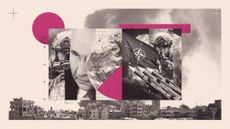 How would we know if World War Three had started?
How would we know if World War Three had started?Today's Big Question With conflicts in Ukraine, Middle East, Africa and Asia-Pacific, the 'spark' that could ignite all-out war 'already exists'
By Harriet Marsden, The Week UK Published
-
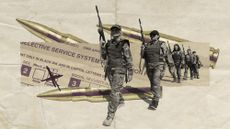 The issue of women and conscription
The issue of women and conscriptionUnder the radar Ukraine military adviser hints at widening draft to women, as other countries weigh defence options amid global insecurity
By Harriet Marsden, The Week UK Published
-
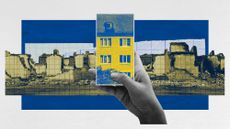 Ukraine's unconventional approach to reconstruction
Ukraine's unconventional approach to reconstructionUnder the radar Digitally savvy nation uses popular app to file compensation claims, access funds and rebuild destroyed homes
By Harriet Marsden, The Week UK Published
-
 Will Ukraine's leadership reset work?
Will Ukraine's leadership reset work?Today's Big Question Zelenskyy hints at ousting of popular military chief, but risks backlash amid dwindling munitions, delayed funding and Russian bombardment
By Harriet Marsden, The Week UK Published
-
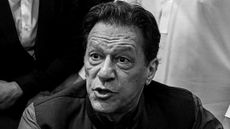 Imran Khan sentenced to 10 years: how powerful is Pakistan's military?
Imran Khan sentenced to 10 years: how powerful is Pakistan's military?Today's Big Question The country's armed forces ignore country's economic woes, control its institutions and, critics say, engineer election results
By Harriet Marsden, The Week UK Published
-
 What is Iran's endgame?
What is Iran's endgame?Today's Big Question Tehran seeks to supplant US and Saudi Arabia as dominant power in Middle East while forcing Israel to end Gaza war
By Harriet Marsden, The Week UK Published
-
 Israel proposes two-month pause in Gaza war in exchange for all Hamas hostages
Israel proposes two-month pause in Gaza war in exchange for all Hamas hostagesSpeed Read Deal doesn't include an agreement to end war, but might be 'the only path that could lead to a ceasefire', said US officials
By Harriet Marsden, The Week UK Published
-
 Nato official warns of all-out war with Russia in next 20 years
Nato official warns of all-out war with Russia in next 20 yearsSpeed Read Civilians must prepare for life-changing conflict and mass mobilisation, says military chief
By Harriet Marsden, The Week UK Published